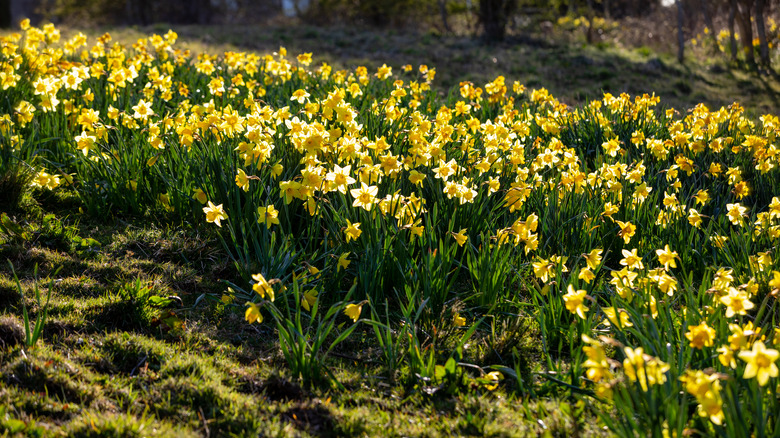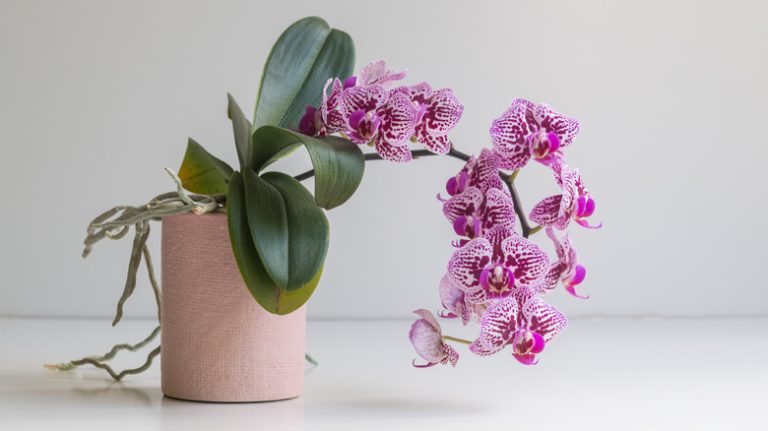Spring is a joyous time with so many things to appreciate in nature. Singing birds, sunny mornings, and bright flowers are just some of the things that make springtime such a delightful season. But for some, spring marks the beginning of a scary time of year, especially for those with ophidiophobia – the extreme fear of snakes. Snakes tend to emerge in early spring and become much more active as temperatures continue to rise. Snake sightings are common during this time of year, as these hungry critters are willing to travel a lot of distance in search of food or potential mates. Luckily, there may be one beautiful spring flower you can plant that works like a “keep out” sign for snakes: the daffodil.
Daffodils, also known as narcissus, are rumored to keep snakes at bay, but it isn’t because of their cheery coloring or thick foliage. Here’s the theory behind why snakes and daffodils don’t mix, and whether the lovely bulb flower really works like a natural snake repellent.
Daffodils do repel some animals

Daffodils are naturally toxic to most animals because all parts of the daffodil plant contain lycorine. Lycorine is a crystalline alkaloid that is poisonous if ingested, causing stomach pain, nausea, and other digestive issues. The bulb of the plant contains the highest levels of crystalline alkaloid and is therefore the most toxic part. Animals like deer, rabbits, moles, and voles tend to avoid daffodil plants because eating them can make them feel sick. Daffodil also doubles as a powerful rat repellent. All snakes are carnivorous, which means they aren’t likely to ingest any parts of the daffodil except by pure accident. However, by repelling rats and other small animals, you may also be able to discourage snakes from coming to your yard to feast.
Daffodils are also known to cause contact dermatitis, an irritation of the skin caused by calcium oxalate crystals in the plant’s sap. Human gardeners commonly call this “daffodil itch”. For a snake slithering around on the ground, it makes sense that brushing up against daffodils could spell bad news. After all, feeling itchy can’t be much fun when you have no hands to scratch with. If the snake has an open wound, daffodil sap entering the bloodstream might even affect its heart and nervous system. However, daffodils alone aren’t guaranteed to scare away snakes, and there are more effective natural means of snake control you could choose from.
Other methods may be better for snakes

If anything, daffodils are likely to deter typical prey animals for snakes, which would make them less likely to spend time in your yard. However, there hasn’t been enough research to conclude that daffodils will deter the snakes themselves. Planting daffodils could be a fun backyard experiment, but there are much more foolproof ways to keep snakes from slithering around in your yard. Start by removing brush piles, rocks, stumps, and other places where snakes and their prey may be hiding, and remove standing water from birdfeeders, fountains, and troughs.
Snakes’ sense of smell and taste is extremely sensitive, which is why they flick their tongues in the air to detect nearby prey. Knowing this, one solution to getting rid of snakes in your yard is to install stinky snake-repelling plants that are better backed by research than daffodils, such as marigold, lemongrass, alliums, and basil. Sharp, pokey plants like holly and mother-in-law’s-tongue can also be effective because they’re uncomfortable for snakes to crawl over. If you have no more room in your garden, reach for clove, peppermint, or cinnamon essential oil, cedar chips, vinegar, lime, ammonia, or sulfur to outline your perimeter and give off a strong natural odor that snakes tend to avoid. Spraying fox urine around your property can also work, as foxes are natural predators of snakes. Backyard chickens, guineas, turkeys, and pigs are also known to kill snakes occasionally.



